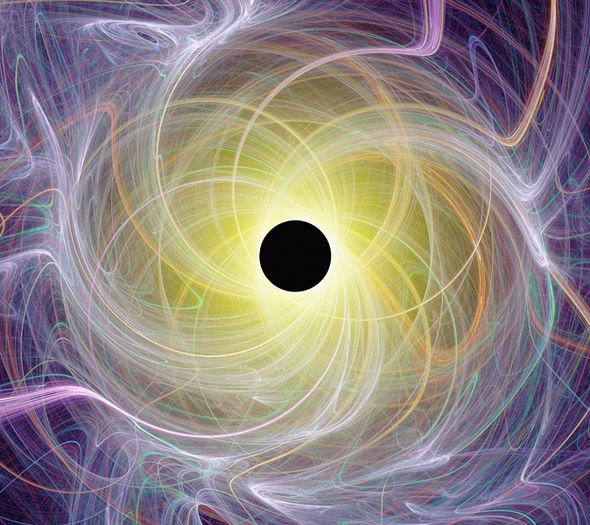
The profundities of the universe have fascinated humans for centuries, and as technology progresses, so does our comprehension of it. In this discourse, we will scrutinize how technology has impacted our perception of the universe with its opportunities and challenges for gaining scientific knowledge.
One of the significant areas of innovation in technology in recent years has been in telescopes, both on Earth and in space. Telescopes have facilitated us to discern further and more vividly than ever before, offering us a glimpse into the abysses of the universe. The Hubble Space Telescope, in particular, has been instrumental in expanding our understanding of the universe. NASA describes the Hubble as having, “revolutionized almost every area of observational astronomy” .
The Hubble has delivered awe-inspiring images of galaxies, nebulae, and other astronomical phenomena. However, it has also enabled us to calculate with more precision the distances to these objects, resulting in the discovery of dark energy, an inscrutable force that fosters the universe’s expansion rate. This discovery has challenged our comprehension of the universe, leading us to ask new questions with a deeper inquisitiveness about existence.
Furthermore, the Keck Observatory in Hawaii has been instrumental in allowing us to measure distances to objects with even greater accuracy. Specifically, the observatory has a specialized instrument known as the MOSFIRE that measures the wavelengths of light, allowing scientists to measure distances to galaxies with an accuracy of about 1% (Source). This instrument has led to the discovery of new galaxies and has allowed for scientists to better understand how galaxies evolve over time.
Nevertheless, though technology has authorized us to explore the universe in incredible detail, it has also presented formidable challenges. As we learn more about the universe, we are confronted with new enigmas, queries, and exigencies that we must endeavor to resolve.
One of the most arduous challenges facing scientists is the search for life beyond Earth. With the discovery of exoplanets in recent years, the possibility of life on other planets has become more tangible than ever before. But how do we scrutinize life on these distant worlds? Dr. Lisa Kaltenegger, an astrophysics professor at Cornell University, explains that, “We will not be able to see the alien life, but we might be able to see the biosignature gases that they produce”. This means that we need to develop new technologies and methodologies to detect these gases, and to determine if they genuinely indicate the presence of life.
Furthermore, one of the biggest challenges facing the search for life beyond Earth is the fact that we do not yet understand what the exact conditions are that are needed to support life. This means that we need to continue studying our own planet to understand what factors determine a planet’s habitability. The James Webb Space Telescope, set to launch in 2021, will be able to study newly discovered exoplanets in further detail and provide us with important data that could lead to the discovery of life beyond Earth.
Another challenge is the search for dark matter, an enigmatic substance that comprises most of the matter in the universe. Dark matter does not interrelate with light, and thus, cannot be directly observed. As a result, scientists have to scrutinize its effects on other objects in the universe to learn more about it.
This led to the development of new technologies, such as dark matter detectors, that are being utilized to detect evidence of its existence. As Dr. Richard Massey, an astrophysicist at Durham University, explains, “It’s amazing that we can build machines that can detect something that we’re not even sure exists” .
Furthermore, the Large Hadron Collider (LHC) is a particle accelerator that is currently being utilized to understand the behavior of dark matter. Specifically, physicists at the LHC have been attempting to produce particles of dark matter and study their interactions. While the results of these experiments have yet to yield any definitive conclusions, they are essential to better understanding one of the most fundamental mysteries of the universe.
While technology has posed novel challenges, it has also created fresh opportunities for scientific breakthroughs. For instance, the increased application of computer simulations is enabling scientists to model intricate processes in the universe such as the formation of galaxies. This is facilitating us to gain a better understanding of the universe and to scrutinize different theories about its origins and evolution.
Moreover, advancements in artificial intelligence (AI) are also revolutionizing the way we study the universe. In 2017, a team of researchers used an AI algorithm to sift through data from the Kepler space telescope, and discovered two new exoplanets that were missed by human researchers. The algorithm was able to analyze light curves from the telescope and identify the distinctive signal of a planet passing in front of a star. This illustrates how AI can help us discover new patterns and phenomena that may have been missed by human researchers.
Technology has also enabled us to cooperate more effortlessly and share information and ideas across the globe. The internet has made it feasible for scientists to work together in ways that were once unattainable. As Professor Sheila Rowan, an astrophysicist at the University of Glasgow, notes, “It’s a different way of working – a much more connected way”. This cooperation has led to noteworthy discoveries, such as the detection of gravitational waves, the ripples in space-time predicted by Einstein’s theory of relativity.
In conclusion, technology has had a significant impact on our understanding of the universe, both in terms of the challenges it poses and the opportunities it provides. As we continue to push the boundaries of what is attainable, we are likely to encounter even more mysteries and questions about the universe.
However, with the continued development of new technologies, we will also be able to scrutinize it in ways we once contemplated as implausible. As Dr. Alexander Mustill, an astrophysicist at Lund University in Sweden, notes, “It’s a gargantuan challenge… but also an exhilarating time to be involved in astronomy”. The future of astronomy is bright and is filled with numerous opportunities to better our understanding of the cosmos.
By: Ahmad Farooq Khan
Write and Win: Participate in Creative writing Contest & International Essay Contest and win fabulous prizes.


